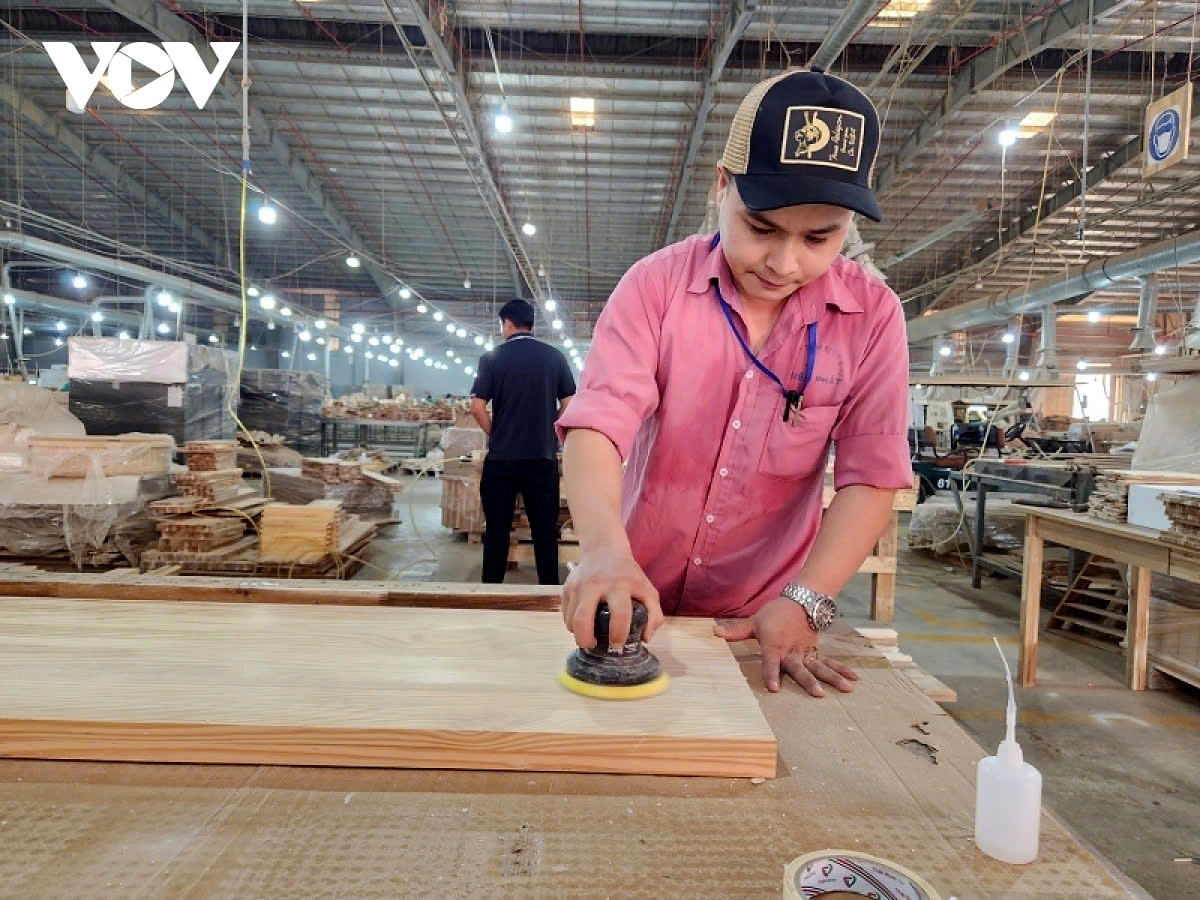Wood industry recovers as export earnings projected to reach US$18 billion
VOV.VN - After experiencing a sharp fall in exports in 2023, the Vietnamese wood industry bounced back in 2024 and is currently flying high as a major hard currency earner of the economy, with export earnings projected to be at US$18 billion this year.

The wood industry enjoyed a spectacular export performance last year following a sharp 15.9% decline during 2023, according to Ngo Sy Hoai, vice chairman and secretary general of the Vietnam Timber and Forest Product Association (VIFOREST).
“We feared that it would take the industry more time to regain its growth momentum, but beyond our expectations the industry rebounded unexpectedly quickly within a year,” Hoai told daibieunhandan.vn.
He cited VIFOREST statistics outlining that the country’s wood and forest product exports generated nearly US$17.3 billion in 2024, a 20% increase compared to 2023.
“Vietnamese wood products have solidified their position in several key markets, earning customer trust,” said Hoai, “Major markets like the United States, China, Japan, the Republic of Korea, and the European Union have all recovered, thereby boosting purchasing power.”
Among other factors driving recovery, he stated that Vietnamese businesses have showcased their resilience and competitiveness in both quality and pricing. The Government has introduced policies, credit packages, and incentives specifically aimed at supporting businesses in difficulty. In addition, Vietnamese trade offices abroad have intensified efforts to promote wood product exports, while domestic businesses have actively sought to expand markets and enhance product appeal.
“With the sound performance in 2024, the wood industry is poised to earn US$18 billion from exports in 2025, and I expect it will surpass the target,” the VIFOREST official expressed his optimism.
According to him, the United States remains the most critical market, supported by strong diplomatic and strategic ties. Other markets such as Japan, China, the Republic of Korea, and the EU are all expected to maintain stable growth, particularly as Vietnamese wood products are difficult to replace. In addition, businesses are enhancing trade promotion activities, product design, and accountability in ensuring the legal origin of wood to strengthen their foothold in demanding markets.
Despite ample room, challenges are lying ahead as both the EU and US markets increasingly demand stricter traceability of wood origins, requiring local businesses to improve supply chain management and ensure compliance with legal wood sourcing.
Moreover, regional competitors such as Indonesia, Malaysia, and Thailand boast strong potential, making the market more competitive, not to mention the impact of the US-China trade war which could alter market dynamics. Fluctuations occurring in maritime transport and logistics could also disrupt supply chains, negatively affecting global trade.
Alongside enforcing green growth and digital transformation criteria, Hoai said that VIFOREST will prioritise enhancing trade defence capabilities for businesses in an effort to drive the industry forward.
“VIFOREST will collaborate with Trade Remedies Authority and Vietnamese trade offices overseas to issue timely warnings and help businesses avoid trade defense cases. It will promote Vietnam’s Timber Legality Assurance System (VNTLAS), strengthen links across the supply chain, from forest growers to processing and export enterprises, and support businesses in engaging in international trade fairs to both secure contracts and promote Vietnamese wood products,” said Hoai.
He also suggested that the Government move to enhance economic diplomacy and improve VAT refund processes for wood enterprises in a bid to reduce risks and ensure compliance with relevant regulations.


